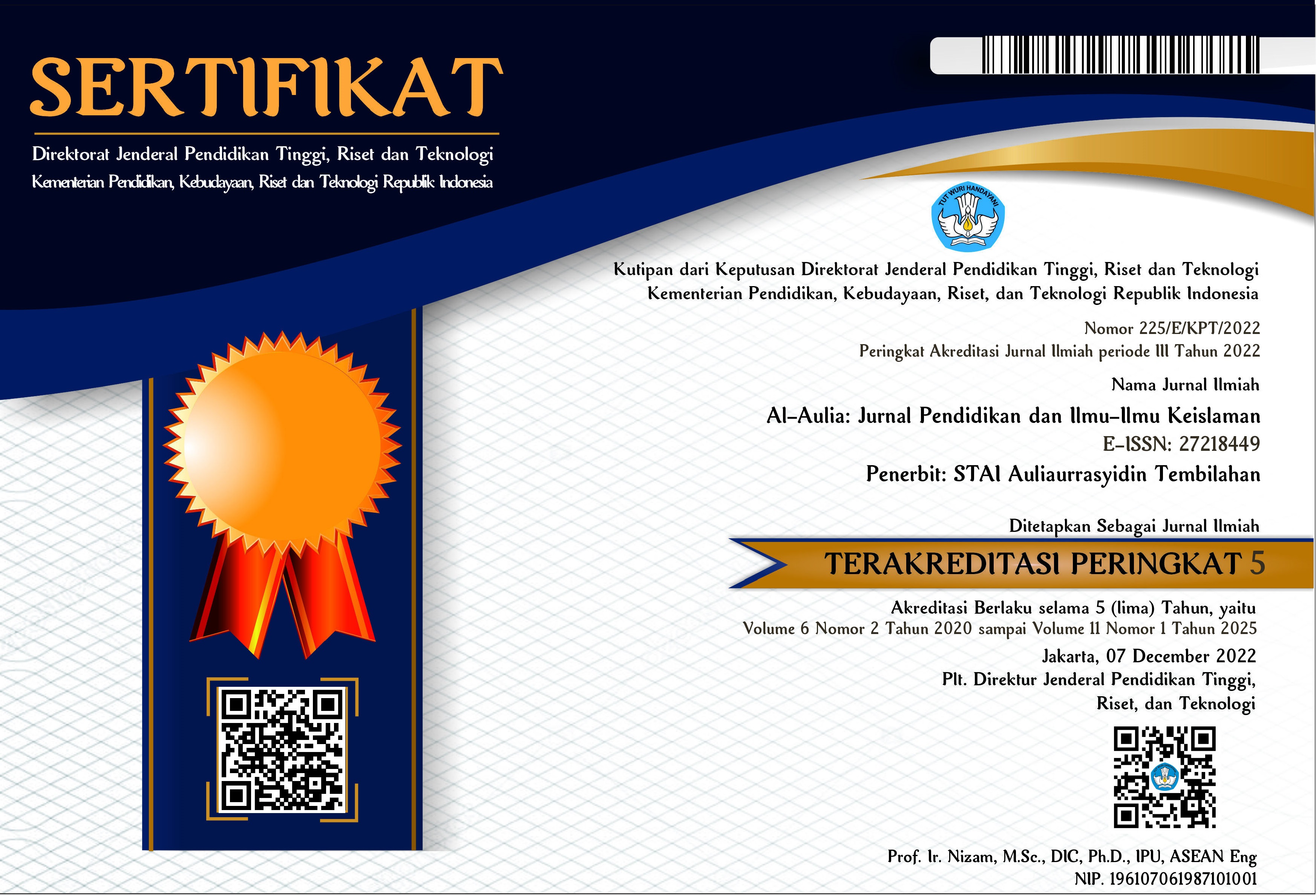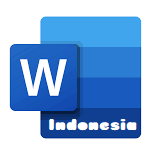Perencanaan Pendidikan Agama Islam Kontemporer
DOI:
https://doi.org/10.46963/aulia.v8i1.540Keywords:
Planning, Contemporary Islamic EducationAbstract
Education is a process of experience, because life is a growth education means helping inner growth without being limited by humans. Humans as creatures who are given advantages by Allah SWT with a form of reason in humans that other creatures of Allah do not have in their lives, that to cultivate their minds requires a pattern of education through a learning process. Planning is a projection of what is needed in order to achieve valid and valuable goals in educational institutions. Contemporary Islamic Education is an activity that is carried out in a planned and systematic way to develop the potential of students based on the principles of Islam at this time. Education is one of the basic needs in human life who thinks how to live the life of this world in order to maintain life and the livelihood of humans who carry out the task of the Kholiq to worship.
References
Ali Imran, Guru SDIT H. Djalaluddin Bonjo Alam Ampek Angkek Kab Agam
Ali Abdul Halim Mahmud, Perangkat-perangkat Tarbiyah Ikhwanil Muslimin, (Solo: Era Intermedia, 1999.
Achmad Munib, Pengantar Ilmu Pendidikan, (Semarang: Universitas Negeri Semarang, 2010.
B. Uno, Hamzah, Perencanaan Pembelajaran, (Jakarta: Bumi Aksara, 2006
Bashori Muchsim dan Abdul Wahid, Pendidikan Islam Kontemporer , Bandung: PT. Refika Aditama, 2009.
Hafi Ansarhari, Pengan tar Ilmu Pendidikan, Jawa Barat: Usaha Nasional 1983.
Moh. Roqib, Ilmu Pendidikan Islam, Yogyakarta: PT. LKiS Printing Cemerlang, 2009.
Omar Muhammad al-Toumi al-Syaibani, Falsafah Pendidikan Islam, terj. Hasan Langgulung, Jakarta: Bulan Bintang, 1979.
Suwarno, Pengantar Umum Pendidikan Jakarta: Rineka Cipta, 1992
http://mastertarbiyah1982.wordpress.com/2013/03/07/beginilah-pendidikan-islam-di-indonesia/ diakses pada tanggal 08 Desember 2021
Panduan Permasyarakatan Undang_Undang Dasar Negara Repulik Indonesia Tahun 1945 Ketetapan MPR RI.
Tim Penyusun, Undang-Undang Republik Indonesia Nomor 20 Tahun 2003 Tentang Sisdiknas, Bab I, Pasal 1, (Jakarta: Direktorat Jenderal Pendidikan Islam, 2006)
Downloads
Published
Issue
Section
License
Authors who publish with this journal agree to the following terms:
1. Copyright on any article is retained by the author(s).
2. The author grants the journal, right of first publication with the work simultaneously licensed under a Creative Commons Attribution License that allows others to share the work with an acknowledgment of the work’s authorship and initial publication in this journal.
3. Authors are able to enter into separate, additional contractual arrangements for the non-exclusive distribution of the journal’s published version of the work (e.g., post it to an institutional repository or publish it in a book), with an acknowledgment of its initial publication in this journal.
4. Authors are permitted and encouraged to post their work online (e.g., in institutional repositories or on their website) prior to and during the submission process, as it can lead to productive exchanges, as well as earlier and greater citation of published work.
5. The article and any associated published material is distributed under the Creative Commons Attribution-ShareAlike 4.0 International License







